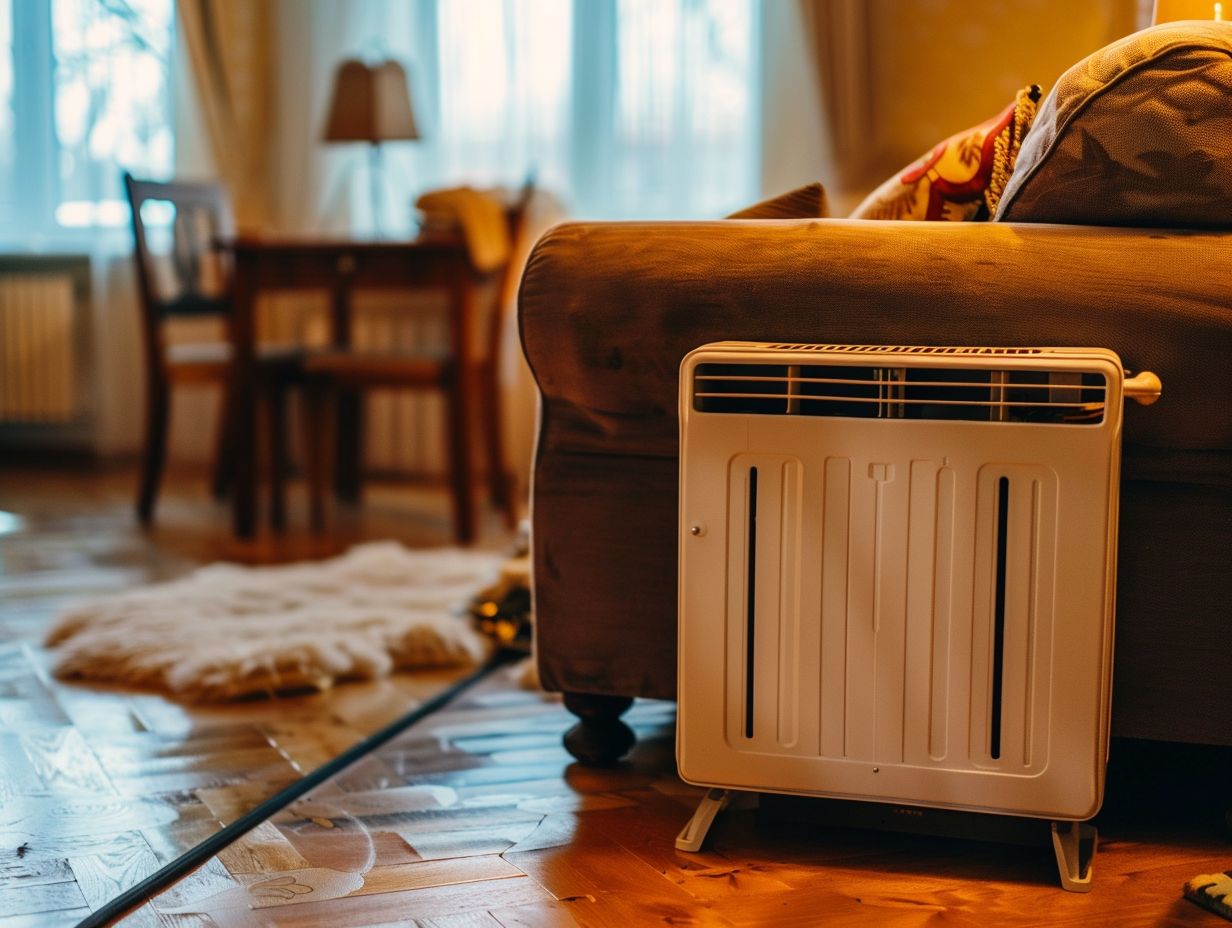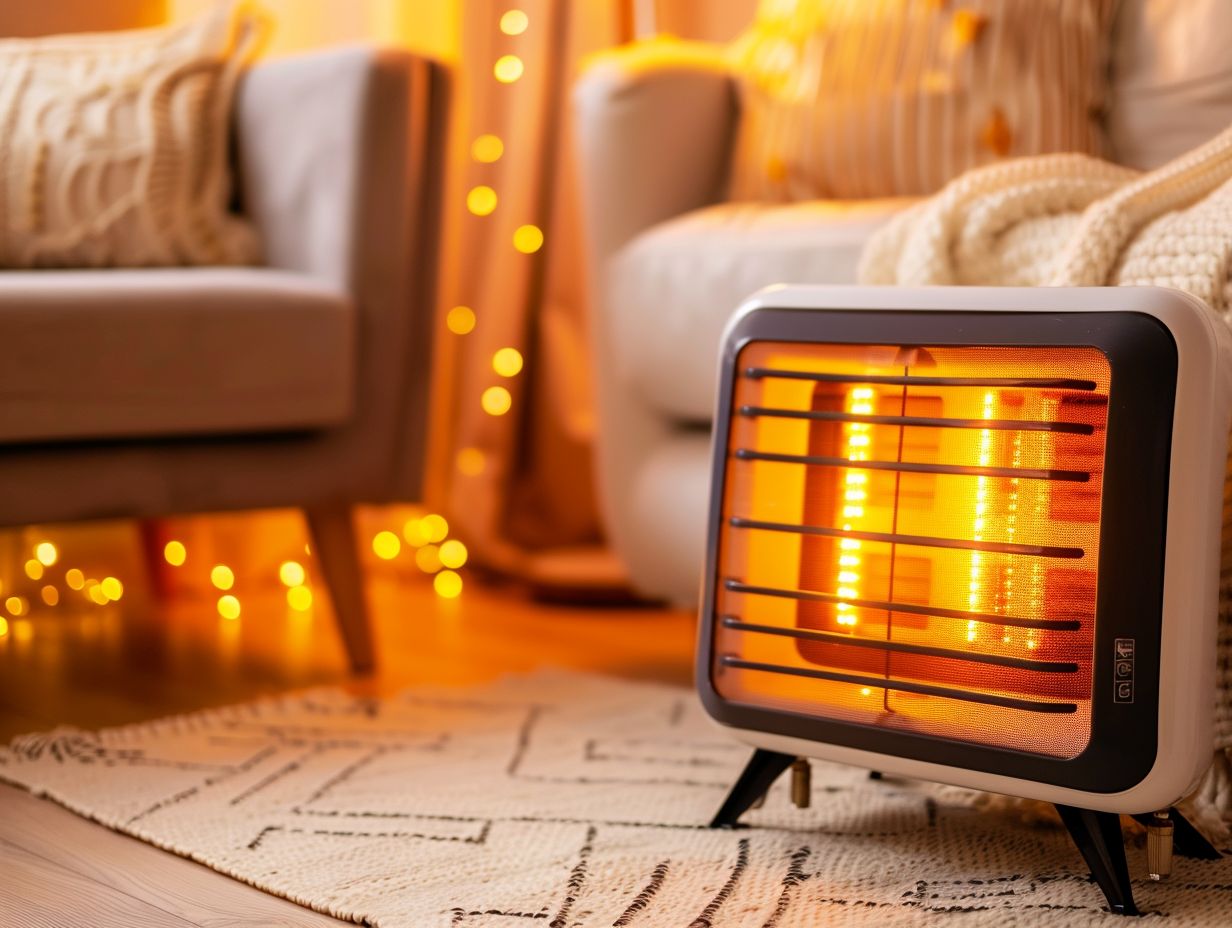Electric heating is a favored choice for maintaining warmth and comfort in homes, especially when temperatures drop. The advantages of electric heating, such as its efficiency and cost-effectiveness, will be examined.
Additionally, potential risks, including fire hazards and electrical dangers, will be discussed. To guarantee safety when using electric heating, it is crucial to focus on correct installation, regular maintenance, and the utilization of safety features.
By comparing electric heating with other available options, you can make a well-informed decision for your home.
Key Takeaways:

- Electric heating can offer efficiency and cost savings, but it also comes with potential risks such as fire and electrical hazards.
- To ensure safety with electric heating, proper installation and maintenance are crucial. Additionally, utilising safety features and taking precautions can help mitigate risks.
- Alternative heating options should be considered, taking into account factors such as safety, efficiency, and cost. It is important to carefully compare different types of heating systems before making a decision.
Ensuring Safety with Electric Heating
Safety should always be the top priority when dealing with electric heating systems. Ensuring safety requires meticulous attention to detail in the installation process, conducting regular maintenance checks, and implementing safety features and precautions to mitigate any potential risks.
Proper Installation and Maintenance
Proper installation and regular maintenance of electric heating systems are essential tasks that should be carried out by qualified electricians, particularly in the construction industry, to ensure operational efficiency and safety.
Qualified electricians play a critical role in ensuring that electric heating systems are installed correctly, meeting all safety codes and regulations. Their expertise in handling electrical components and connections is crucial for preventing hazards such as electrical fires and short circuits.
Routine maintenance by skilled professionals can help identify and address any issues before they escalate, prolonging the lifespan of the system and optimising its performance. Investing in professional installation and regular upkeep can save both time and money in the long run, making it a wise choice for any property owner.
Safety Features and Precautions

Incorporating safety features and taking necessary precautions are crucial steps in mitigating the risks associated with electric heating. Following safety measures and adhering to electrical safety standards are essential for safe operation.
It is imperative for you to ensure that electrical heating systems are installed by qualified professionals to guarantee proper setup and eliminate potential hazards. Regular maintenance and inspections play a significant role in detecting any issues or malfunctions in the system before they escalate.
Educating individuals on the correct usage of electric heating devices and emphasising the importance of monitoring for any signs of overheating or unusual behaviour are key factors in accident prevention. By prioritising safety, you can enjoy the comfort and efficiency of electric heating systems without compromising on well-being.
Alternative Heating Options
Along with electric heating, homeowners have access to a range of alternative heating options. These options include underfloor heating systems, heat pumps, and various fuel sources that can accommodate a wide range of heating requirements.
Comparing Different Types of Heating Systems
When you are evaluating various heating systems, important factors such as efficiency, fuel mix, and the inclusion of green energy sources are pivotal in determining the most appropriate heating solution for your specific requirements.
Efficiency is a critical factor to consider, as it directly impacts the heating costs of a space. Analysing the efficiency levels of different systems can offer insights into their ability to convert fuel into usable heat effectively.
The fuel mix is another vital aspect to evaluate since some systems rely on fossil fuels, while others may incorporate renewable sources. Introducing green energy sources, like solar or wind power, can significantly diminish the environmental footprint of heating systems. For example, electric radiators present a sustainable alternative by utilising electricity, which can be sourced from renewable sources.
Frequently Asked Questions
How Safe Is Electric Heating?

Electric heating is generally considered to be a safe method of heating your home or office. As long as it is properly installed and maintained, the chances of any safety hazards are quite low.
Are there any safety features in electric heaters?
Yes, many modern electric heaters come with safety features such as automatic shut-off, overheat protection, and tip-over switches. These features are designed to prevent accidents and fires and provide an added layer of safety for users.
Is it safe to leave an electric heater unattended?
No, it is not safe to leave an electric heater unattended. It is important to always turn off your heater when leaving the room or going to bed. This reduces the risk of fire and ensures the safety of your home and loved ones.
Can I use an electric heater in a bathroom?
It is generally not recommended to use an electric heater in a bathroom, as the high levels of moisture and water can pose a safety hazard. If you do need to use a heater in your bathroom, make sure it is specifically designed for wet or damp areas and has proper safety features.
What precautions should I take when using an electric heater?
When using an electric heater, it is important to keep flammable items such as curtains, furniture, and clothing at least three feet away from the heater. It is also important to never use extension cords with your heater, as this can increase the risk of overheating and fire.

